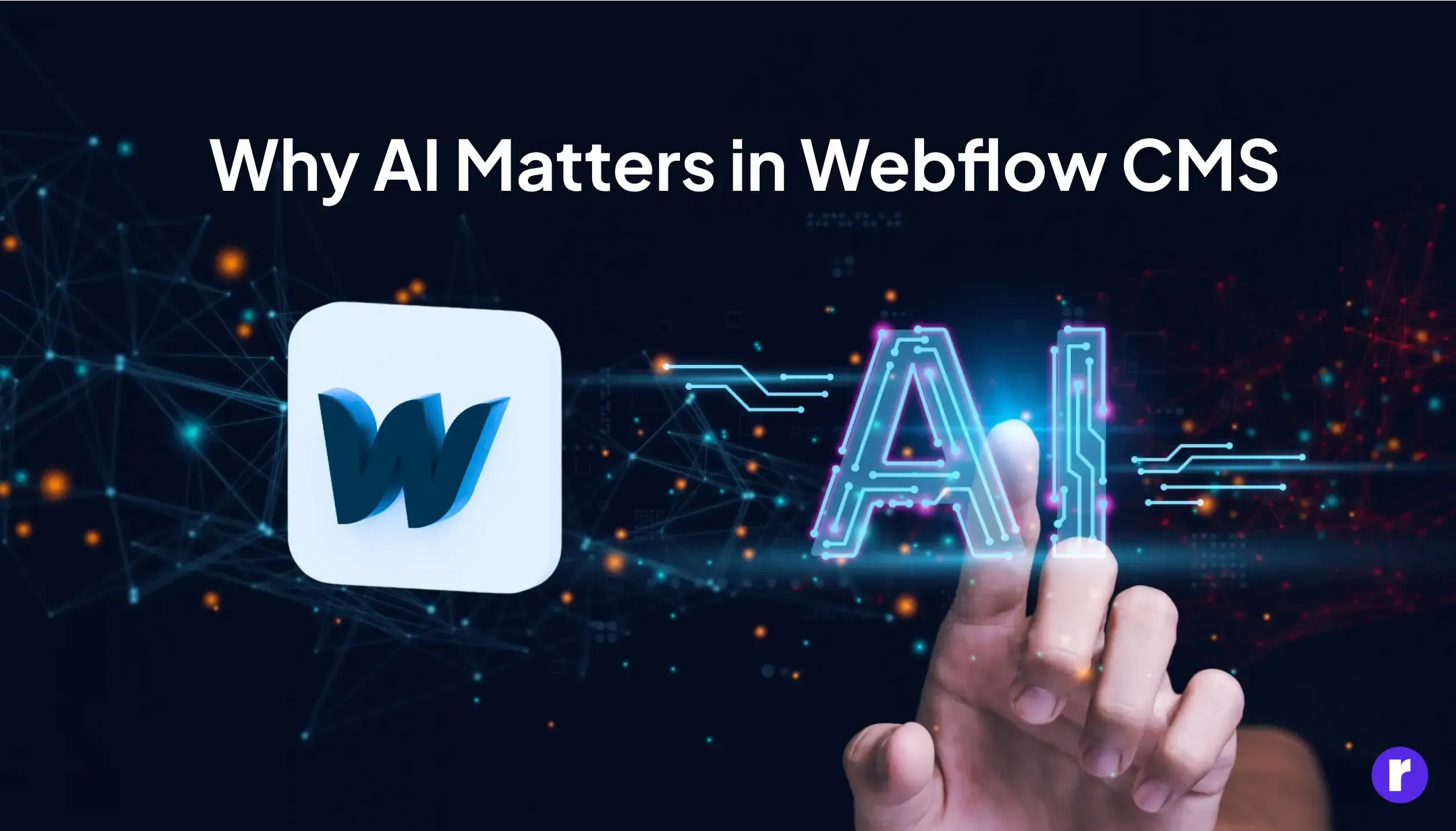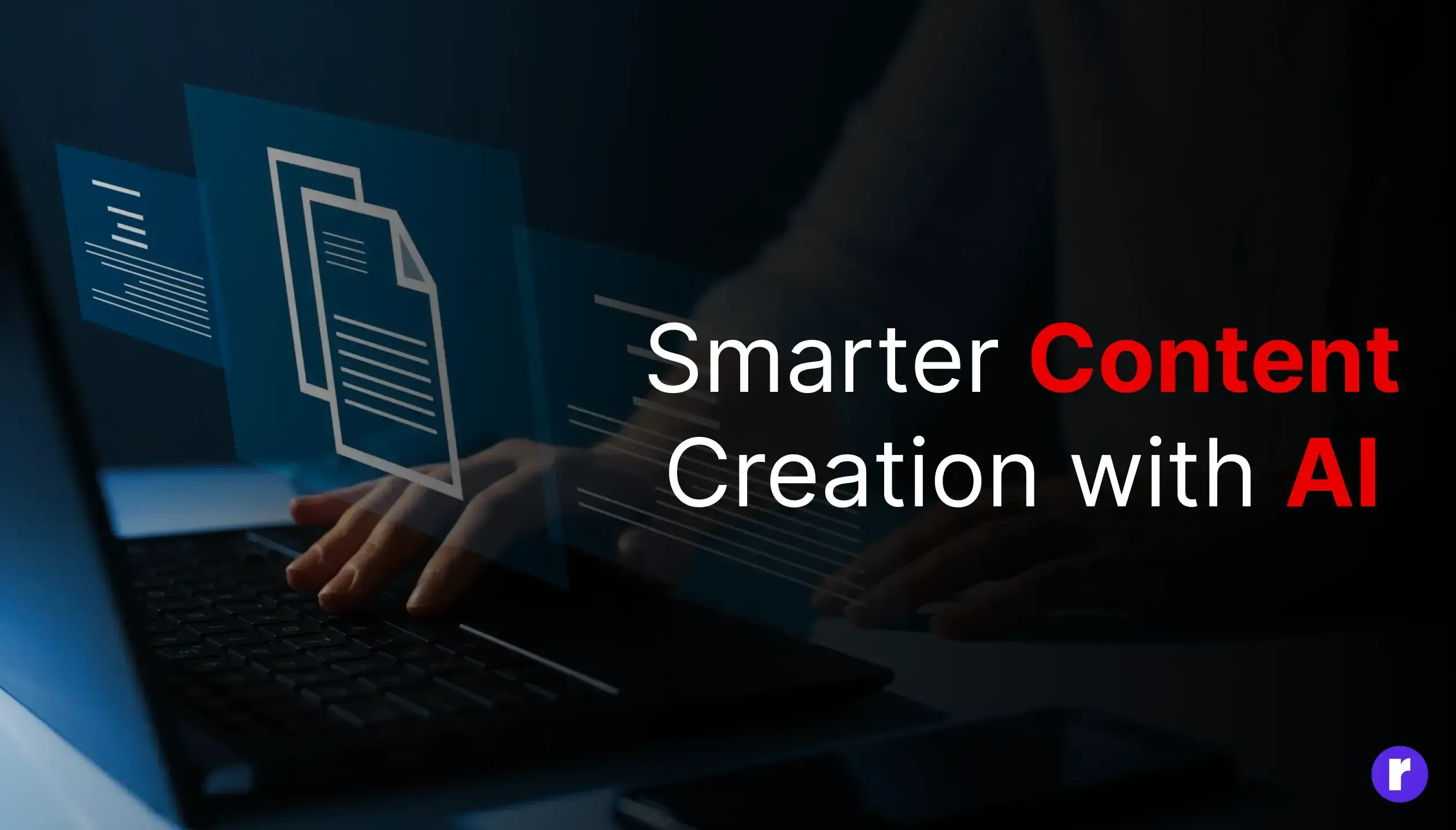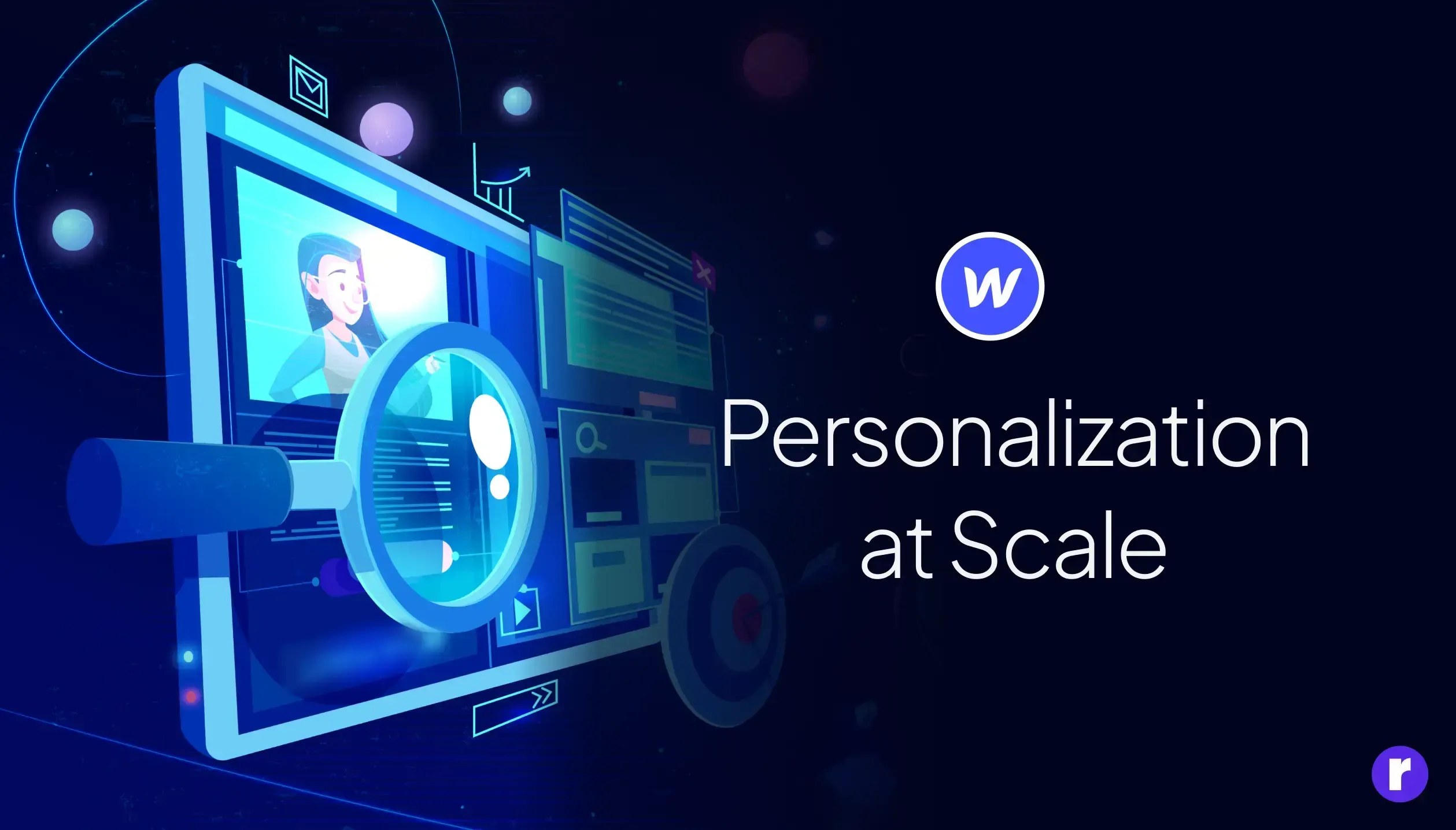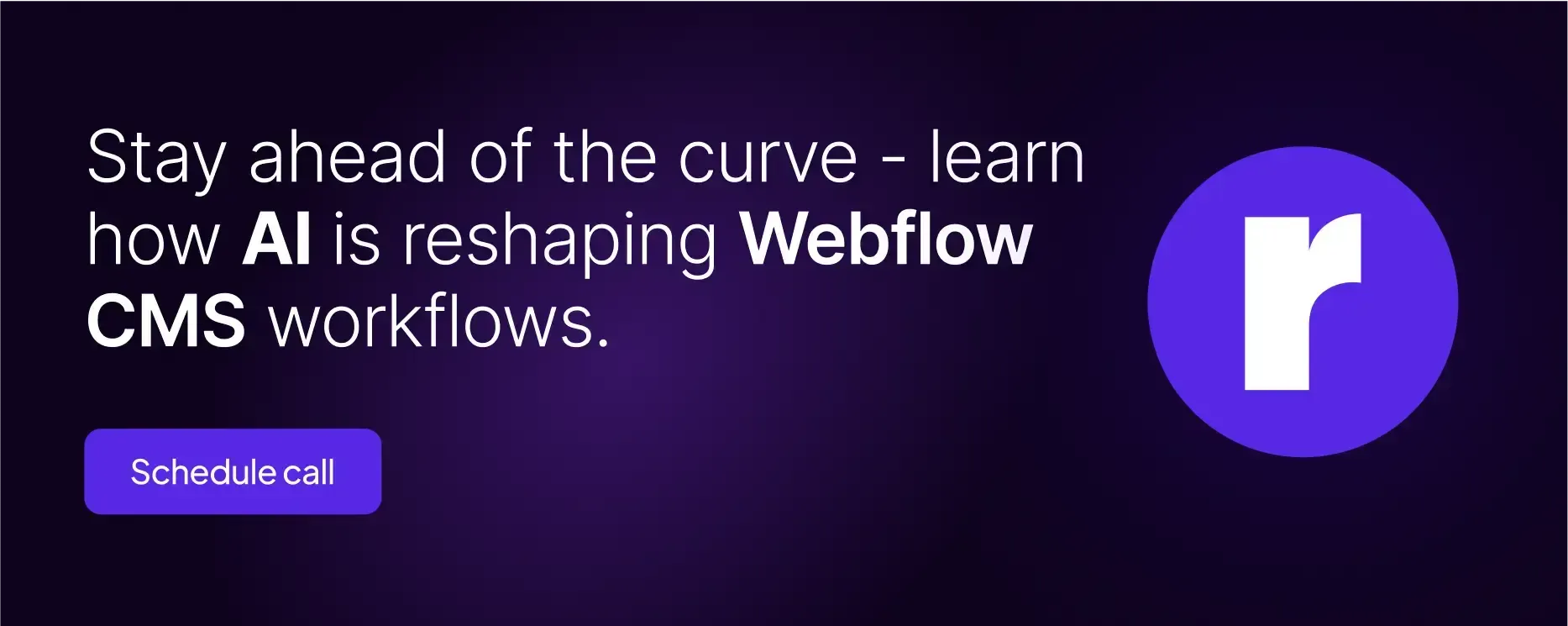The Future of Webflow CMS: AI Automation for Smarter Workflows

Written by
Sanjay Jyani
Front End Developer
Table of contents
Build with Radial Code
In a world where digital experiences evolve rapidly, speed, adaptability, and personalization determine which businesses stand out. Webflow CMS has already reshaped website creation by removing coding hurdles and giving creators more control. But the next wave of innovation is even bigger: the combination of Artificial Intelligence (AI) and automation is set to transform how we plan, produce, and manage online content.
This article discusses how AI-driven automation is shaping the future of Webflow CMS and why organizations should begin adopting it today.
Why AI Matters in Webflow CMS

Webflow CMS is valued for its no-code approach, making it possible to launch websites without heavy reliance on developers. However, tasks such as writing, updating, and scaling content still take significant time.
AI introduces efficiency by automating many of these processes:
- Content Creation - Drafting articles, product descriptions, or landing pages instantly.
- SEO Improvements - Suggesting keywords, optimizing titles, and generating metadata.
- Content Organization - Automatically categorizing and tagging CMS items.
- Personalization - Adapting pages to individual user preferences.
With these capabilities, Webflow CMS shifts from manual operations to intelligent, automated workflows.
Smarter Content Creation with AI

AI integrations are enabling faster and more structured publishing inside the Webflow ecosystem. Examples include:
- AI Writing Assistants - Creating first drafts of blogs or web copy directly into CMS collections.
- Content-to-Design Matching - Recommending page layouts, imagery, or calls-to-action suited to your audience.
- Multilingual Publishing - Generating translations that expand reach without dedicated translation teams.
This means what once took hours—from ideation to SEO-ready publishing—can now be done in minutes without leaving Webflow.
Workflow Automation: Beyond Content
AI is not only changing how content is produced but also how broader workflows operate:
- Chatbots linked to CMS - Pulling answers, articles, or product details in real time.
- Automated Publishing - Identifying the best times to post for higher visibility.
- Tool Integrations - Connecting AI to services like Zapier, HubSpot, or Make for seamless lead nurturing.
- Analytics and Insights - Recommending future topics based on audience engagement trends.
By automating repetitive steps, teams can focus their energy on strategy and creativity rather than routine tasks.
Personalization at Scale

One of the most powerful outcomes of AI in Webflow CMS is its ability to tailor experiences:
- Adaptive Content Blocks - Showing unique versions of a page depending on who visits.
- AI Recommendations - Suggesting services, blogs, or products aligned with a visitor’s history.
- Geo- and Behavior-Based Adjustments - Delivering localized or behavior-specific experiences.
Personalized websites encourage users to stay longer, engage more, and convert at higher rates.
Challenges to Keep in Mind
The rise of AI in content management comes with considerations:
- Maintaining Authenticity - AI-generated content should be reviewed to ensure originality and accuracy.
- Data Responsibility - Personalization must respect user privacy and comply with data regulations.
- Balanced Adoption - AI should act as a support system rather than replacing human creativity.
Clear guidelines are needed to build trust while still leveraging automation effectively. If you’re looking to implement these strategies, Radial code can help you build and scale your Webflow website with AI-powered workflows.
"💡 Curious whether Webflow or Framer fits your needs better? Read our blog on Webflow or Framer.
Looking Ahead
The integration of AI into Webflow CMS will continue to expand with features such as:
- Voice or chat-based commands to add and edit content.
- Predictive analytics that anticipate audience needs.
- AI-powered design tools for instant layouts and visuals.
- Self-optimizing websites that adapt automatically to performance data.
This evolution means websites will become more intelligent, adaptable, and impactful over time.
Conclusion
The future of Webflow CMS lies in combining no-code flexibility with the power of AI automation. This blend will simplify workflows, deliver personalized experiences, and help creators scale content more efficiently. For digital teams, the benefit is clear: fewer manual tasks and more time for strategic thinking, storytelling, and innovation. The next stage in website management isn’t just about building pages—it’s about developing adaptive digital ecosystems that learn and improve continuously.
